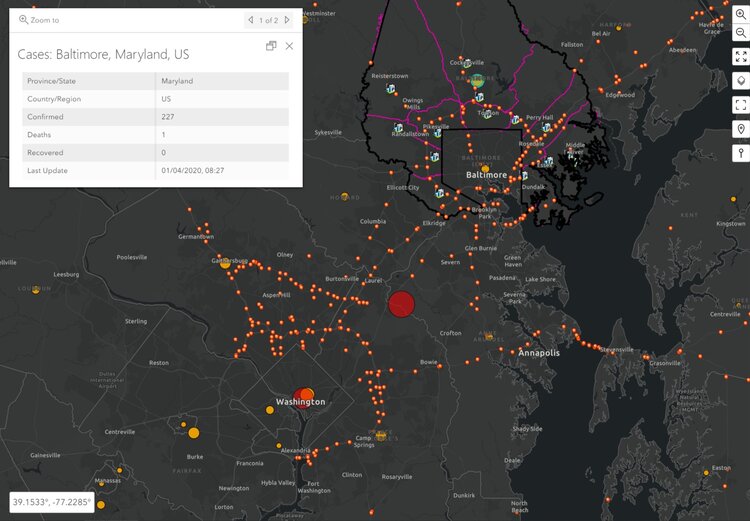When someone calls 911, they’re often describing where they are and what’s happening at the scene. Then it’s the job of the folks on the other side to assess the situation and figure out how to get there ASAP.
It’s a situation where ready access to data can help the telecommunicators — as the people who dispatch and take emergency calls are known as — get first responders to those who need help in an emergency. After all, the first thing callers ask for is the location, not the nature of the emergency.
“Why can Uber find me and 911 can’t? That’s a common catchphrase and I think we’ve really addressed that,” said Steve Raucher, CEO of RapidDeploy, a 115-employee “cloud-aided dispatch” company that is based in Austin and has a presence in Bethesda, as well as South Africa.
There’s also the user experience of the telecommunicator to consider, as legacy systems would typically require combining data from lots of different places.
The City of Baltimore is implementing technology from RapidDeploy that will help to pull together data, then present a real-time map. Called RadiusPlus, the map integrates with the 911 telephone systems. With many callers now dialing 911 from mobile phones, it has tools to verify mobile location accuracy.
“The solution in Baltimore fundamentally is for solving the location of the caller,” Raucher said.
It also pulls in data from mapping engines, weather, traffic and visuals from cameras placed in the city for the person taking the calls. Relevant in the current pandemic, it can also include data from the state and hospitals that shows localized info on cases and outbreaks, as well as hospital capacity. And it can bring in data from the Johns Hopkins-made global coronavirus tracking map, or info from the CDC.
Tenea Reddick, Baltimore’s acting 911 director, said the system will create a “streamlined process and increased situational awareness.”
In addition to its location work, RapidDeploy is also introducing real-time SMS text message translation so call takers can communicate in multiple languages.
“Since Baltimore is a diverse city with growing immigrant communities and over 55,000 residents who speak a language other than English at home, [this function] will be a game-changing benefit for our 9-1-1 center and enable them to more easily communicate with all those needing emergency services,” Reddick said in a statement.
It comes as public safety technology in general is getting an upgrade, with new initiatives like FirstNet that aim to bring more digital communication tools.
“They say that government software refreshes every 15 years and we’re in the middle of a giant refresh cycle,” Raucher said.
Founded by emergency responders, RapidDeploy first launched in South Africa, but soon found that the technology was needed in the U.S., as well. The specific RadiusPlus platform is also deployed in Kansas and California, and the needs that were added for those areas will come online for Baltimore.
“Baltimore is getting the accretive experience of all our other American customers in one package,” Raucher said.
Join the conversation!
Find news, events, jobs and people who share your interests on Technical.ly's open community Slack

Baltimore daily roundup: Medtech made in Baltimore; Sen. Sanders visits Morgan State; Humane Ai review debate

Baltimore daily roundup: The city's new esports lab; a conference in Wilmington; GBC reports $4B of economic activity

Baltimore daily roundup: Find your next coworking space; sea turtle legislation; Dali raided and sued


